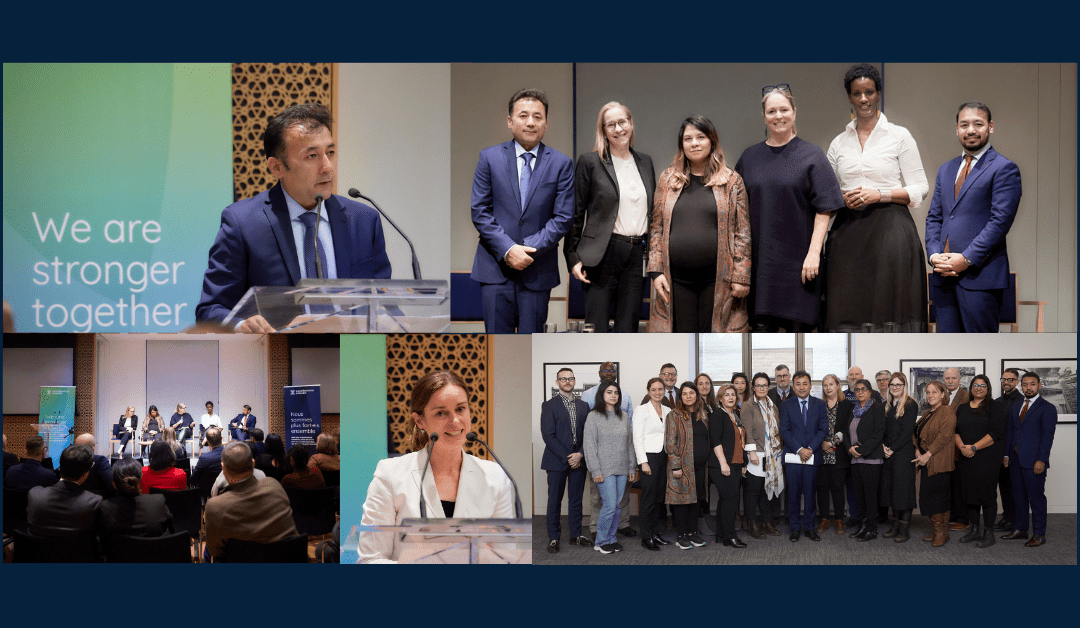On November 30th, 2023, a series of events marked the launch of Resilient Societies, an emerging hub for activists and human rights defenders in exile. With Resilient Societies currently being incubated at Cooperation Canada, a morning brainstorming session was held at its offices in Ottawa, bringing together exiled activists to discuss the challenges of shrinking civic space. Later in the day, activities were held at the Global Centre for Pluralism, hosting a cross-sectoral roundtable discussion and the official launch featuring leading voices from civil society and government.
Resilient Societies
Resilient Societies is an activist-led hub providing support and creating safe spaces for grassroots networks of human rights defenders and democracy and civil society activists to collaborate, innovate, and advocate in ‘closing’ and ‘closed’ civic spaces. Resilient Societies builds on Canada’s culture of embracing diversity and pluralism and its generosity in supporting and welcoming at-risk activists and translates it into organic, innovative, and activist-centred programs and projects with impacts in the diaspora and activists’ countries of origin. By building resilience, enhancing voice and agency, and raising the credibility and relevance of civil society activists and human rights defenders from closed and closing spaces, Resilient Societies contributes to reversing global democratic backsliding and shrinking civic spaces.
Launch Day Highlights
Activist Brainstorming Session
The morning brainstorming session, hosted by Cooperation Canada, assembled a group of exiled activists from Afghanistan, Hong Kong, Iran, Pakistan, Syria, and Ukraine. This was an opportunity for defenders of human rights and civic space to discuss the challenges of continuing their advocacy work whilst in exile. This included reflections on how communication technologies that previously facilitated linkages between exiled activists and those that remain in closing (or closed) civic spaces are increasingly co-opted by authoritarian regimes and the private sector, posing greater risks to activists and their socio-familial networks. Some argued that challenges related to status and acknowledgment were at play. They clarified that despite exiled activists typically receiving recognition for their efforts in their home country, they don’t enjoy the same esteem in Canada, which hampers their prospects of securing meaningful employment.
Cross-Sectoral Roundtable Discussion
In the early afternoon, activists were joined by members of civil society, government, and academia for a cross-sectoral discussion hosted by the Global Centre for Pluralism. The discussion was divided into two sessions. The first session, Shrinking Civic Spaces: Understanding the Context, presented an opportunity for activists and human rights defenders to share their experiences and perspectives with roundtable participants. Key points included the increasing extent of transnational repression and the unique vulnerability of certain groups engaged in civic space activism, notably women, racialized persons, and LGBTQI+. The second session, Reclaiming Civic Space: The Way Forward, opened the discussion towards a future-forward dimension. Participants across sectors raised the need to become more organized and coordinated in the defence of human rights, and that such rights are not segregated and shouldn’t be considered an ‘à la carte menu.’ Notably, there was broad agreement that Canada is not sheltered from the global trend of shrinking civic space, and that leveraging the insight and lived experience of activists in exile would be beneficial to current and future efforts towards the protection of democratic values and institutions.
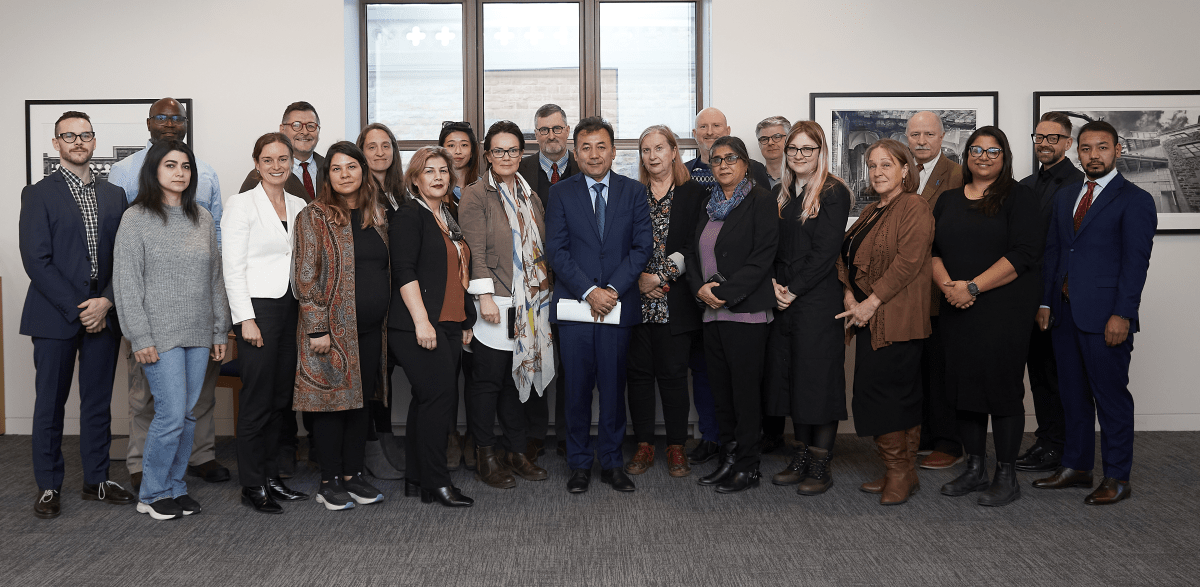
The main launch event, again hosted by the Global Centre for Pluralism, was attended by leading representatives from civil society, academia, and government. Kicking off the event was Meredith Preston McGhie, Secretary General at the Global Centre for Pluralism, highlighting the importance of supporting efforts towards the preservation and protection of civic space. For the keynote address, Anita Vandenbeld, Parliamentary Secretary to the Minister of International Development, provided sobering words on the erosion of democracy worldwide. The message was clear: Defending democracy is urgently needed, and Canada stands to gain by being at the forefront of these efforts. This was followed by words shared by Kate Higgins, CEO at Cooperation Canada, reaffirming its commitment to playing a convening role in the field of international cooperation, and to incubating the important work of Resilient Societies. Maiwand Rahyab, a civic space expert from Afghanistan and founder and CEO of Resilient Societies, then outlined his vision for this initiative, positioning the unique role activists play in holding to account the global phenomena of shrinking civic space. The format then shifted to a panel discussion moderated by Sayed Madadi, esteemed activist-in-exile, non-resident Fellow at the Middle East Institute in Washington, and editor at KabulNow. The panel comprised of Muzna Dureid, a leading human rights activist from Syria, Ketty Nivyabandi, Secretary General of Amnesty International Canada, Julie Delahanty, President of the International Development Research Centre, and Tara Denham, Director-General of Human Rights, Freedoms and Inclusion at Global Affairs Canada. The event was closed by Chris Eaton, Executive Director of World University Service of Canada, providing inspiring words of encouragement, underlining that initiatives such as Resilient Societies are deserving of attention and resources.
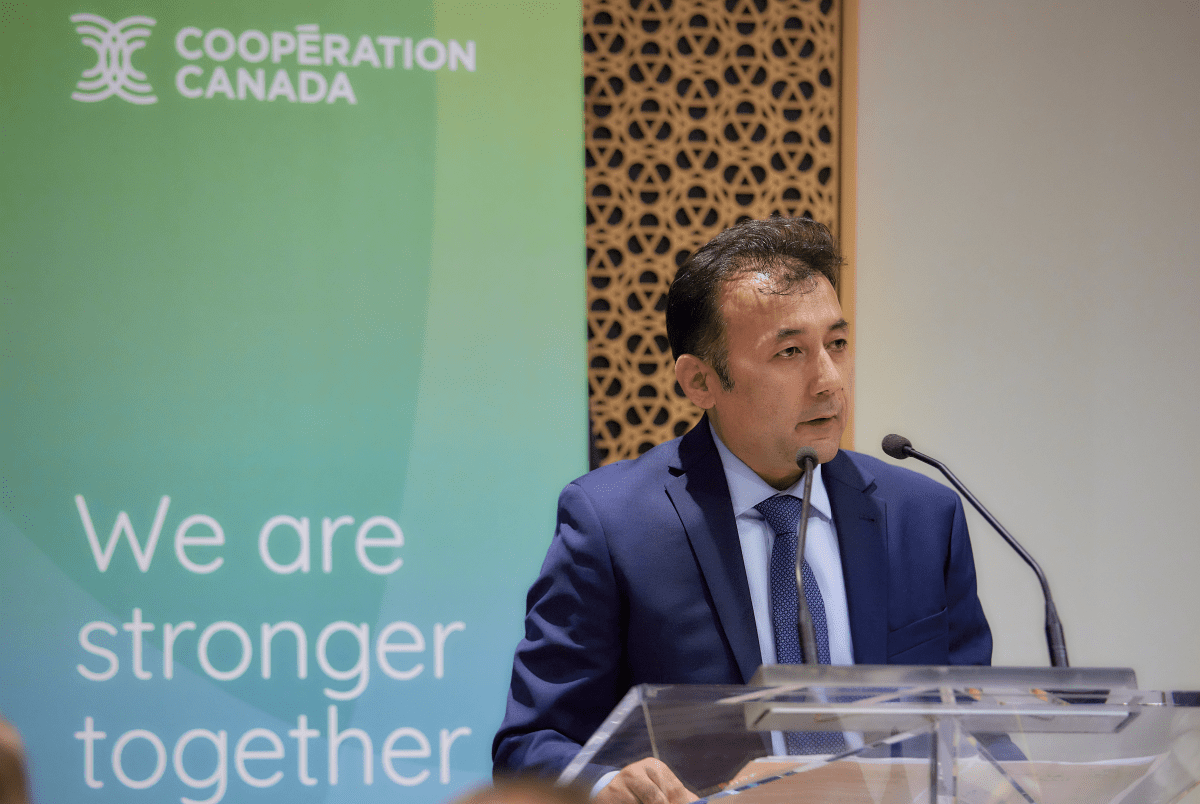
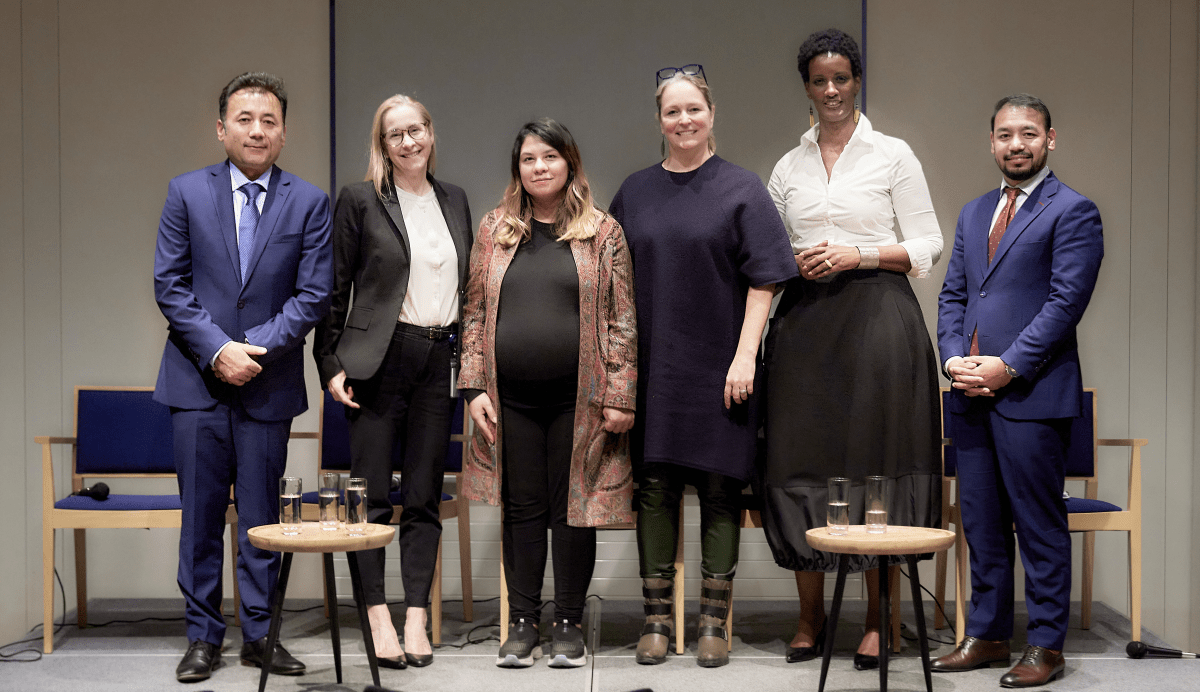
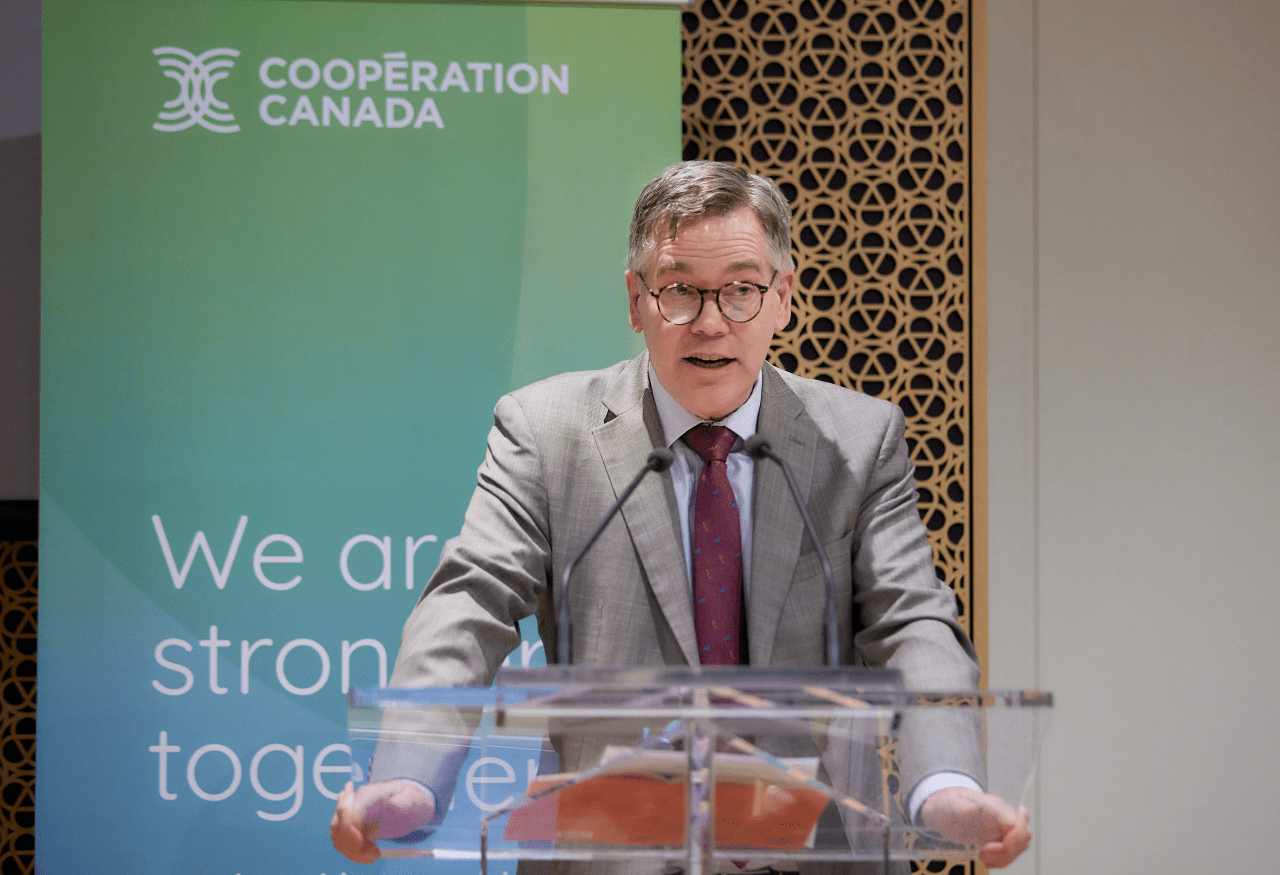
No member found

